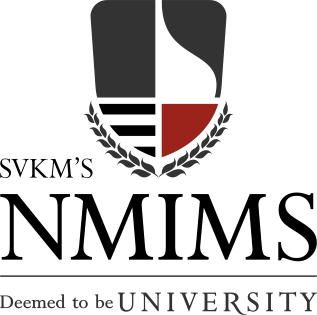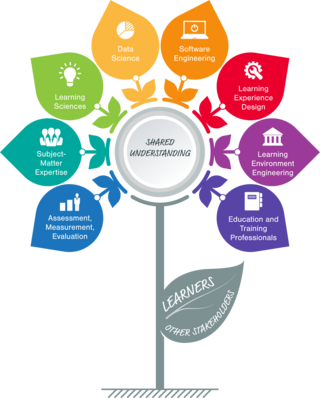
Carnegie Mellon University (CMU) is a private research university in Pittsburgh, Pennsylvania, United States. The institution was established in 1900 by Andrew Carnegie as the Carnegie Technical Schools. In 1912, it became the Carnegie Institute of Technology and began granting four-year degrees. In 1967, it became Carnegie Mellon University through its merger with the Mellon Institute of Industrial Research, founded in 1913 by Andrew Mellon and Richard B. Mellon and formerly a part of the University of Pittsburgh.

The Heinz College of Information Systems and Public Policy, also known as Heinz College, is the public policy and information college of Carnegie Mellon University in Pittsburgh, Pennsylvania. It consists of the School of Information Systems and Management and the School of Public Policy and Management. The college is named after CMU's former instructor and the later U.S. Senator John Heinz from Pennsylvania.

Dabbala Rajagopal "Raj" Reddy is an Indian-American computer scientist and a winner of the Turing Award. He is one of the early pioneers of artificial intelligence and has served on the faculty of Stanford and Carnegie Mellon for over 50 years. He was the founding director of the Robotics Institute at Carnegie Mellon University. He was instrumental in helping to create Rajiv Gandhi University of Knowledge Technologies in India, to cater to the educational needs of the low-income, gifted, rural youth. He was the founding chairman of International Institute of Information Technology, Hyderabad. He was the first person of Asian origin to receive the Turing Award, in 1994, sometimes known as the Nobel Prize of computer science, for his work in the field of artificial intelligence.

The College of Engineering, Guindy (CEG) is a public engineering college situated in Chennai, India. It is Asia's oldest technical institution, founded in 1794. It is also the oldest technical institution to be established outside Europe.

The Personal Software Process (PSP) is a structured software development process that is designed to help software engineers better understand and improve their performance by bringing discipline to the way they develop software and tracking their predicted and actual development of the code. It clearly shows developers how to manage the quality of their products, how to make a sound plan, and how to make commitments. It also offers them the data to justify their plans. They can evaluate their work and suggest improvement direction by analyzing and reviewing development time, defects, and size data. The PSP was created by Watts Humphrey to apply the underlying principles of the Software Engineering Institute's (SEI) Capability Maturity Model (CMM) to the software development practices of a single developer. It claims to give software engineers the process skills necessary to work on a team software process (TSP) team.
A Chief Data Officer (CDO) is a corporate officer responsible for enterprise-wide governance and utilization of information as an asset, via data processing, analysis, data mining, information trading and other means. CDOs usually report to the chief executive officer (CEO), although depending on the area of expertise this can vary. The CDO is a member of the executive management team and manager of enterprise-wide data processing and data mining.

Sankar Kumar Pal is a computer scientist and the president of the Indian Statistical Institute (ISI), Kolkata. He is also a National Science Chair, Government of India. Pal is a computer scientist with an international reputation on pattern recognition, image processing, fuzzy neural network, rough fuzzy hybridization, soft computing, granular mining, and machine intelligence. He pioneered the development of fuzzy set theory, and neuro-fuzzy and rough-fuzzy computing for uncertainty modelling with demonstration in pattern recognition, image processing, machine learning, knowledge-based systems and data mining. This has made him widely recognized across the world and made India a leader in these disciplines in international scenario. He founded the Machine Intelligence Unit in 1993, and the Center for Soft Computing Research: A National Facility in 2004, both at the ISI. In the process he has created many renowned scientists.

The National Institute of Business Management also known as NIBM, is a public business school based in Colombo, Sri Lanka.

Carnegie Mellon University in Australia was the Australian campus of Carnegie Mellon University's H. John Heinz III College from 2006 to 2022 in the city centre of Adelaide, South Australia. In June 2022 the operation announced it would close down. Current students were to graduate but no new students would be admitted.

The Indian Institute of Technology Madras is a public technical university located in Chennai, Tamil Nadu, India. It is one of the eight public Institutes of Eminence of India. As an Indian Institute of Technology (IIT), IIT Madras is also recognised as an Institute of National Importance.

Ganpat University (GUNI) is a private university in Kherva, Mehsana in the Indian state of Gujarat. It was established in 2005 through State Legislative Act no. 19 of 2005, Government of Gujarat, and recognized by the UGC under section 2(f) of the UGC Act, 1956.

Shri Vile Parle Kelavani Mandal's Narsee Monjee Institute of Management Studies is a private deemed university located in Mumbai. It has 17 constituent schools that offer both undergraduate and postgraduate courses in management, engineering, commerce, pharmacy, architecture, economics, mathematical sciences, hospitality, science, law, aviation, liberal arts, performing arts, architecture & design. It is accredited by NAAC with 3.59 CGPA and Grade A+. NMIMS was also awarded Category I University status by MoE.

Manuela Maria Veloso is the Head of J.P. Morgan AI Research & Herbert A. Simon University Professor Emeritus in the School of Computer Science at Carnegie Mellon University, where she was previously Head of the Machine Learning Department. She served as president of Association for the Advancement of Artificial Intelligence (AAAI) until 2014, and the co-founder and a Past President of the RoboCup Federation. She is a fellow of AAAI, Institute of Electrical and Electronics Engineers (IEEE), American Association for the Advancement of Science (AAAS), and Association for Computing Machinery (ACM). She is an international expert in artificial intelligence and robotics.
The Institute for Development & Research in Banking Technology (IDRBT) is an engineering training institution exclusively focused on banking technology. Established by the Reserve Bank of India (RBI) in 1996, the institution works at the intersection of banking and technology. It is located in Hyderabad, India.
The Tepper School of Business is the business school of Carnegie Mellon University. It is located in the university's 140-acre (0.57 km2) campus in Pittsburgh, Pennsylvania.
Rexer Analytics’s Annual Data Miner Survey is the largest survey of data mining, data science, and analytics professionals in the industry. It consists of approximately 50 multiple choice and open-ended questions that cover seven general areas of data mining science and practice: (1) Field and goals, (2) Algorithms, (3) Models, (4) Tools, (5) Technology, (6) Challenges, and (7) Future. It is conducted as a service to the data mining community, and the results are usually announced at the PAW conferences and shared via freely available summary reports. In the 2013 survey, 1259 data miners from 75 countries participated. After 2011, Rexer Analytics moved to a biannual schedule.

Sridhar R. Tayur is an American business professor, entrepreneur, and management thinker. He is university professor of operations management and Ford Distinguished Research Chair at the Tepper School of Business, Carnegie Mellon University, and the founder of SmartOps Corporation and OrganJet Corporation.

Ryan S. Baker is professor of education and computer science at the University of Pennsylvania, and also directs the Penn Center for Learning Analytics. He is known for his role in establishing the educational data mining scientific community, for the Baker Rodrigo Ocumpaugh Monitoring Protocol (BROMP), and for establishing the first automated detector of student disengagement. He was awarded the Educational Research Award for 2018 by the Council of Scientific Society Presidents.

National Institute of Technical Teachers' Training and Research, Chennai (NITTTR) is a deemed to be university under distinct category under the Ministry of Education, Government of India. NITTTR Chennai is located in Tharamani in Chennai.

Learning Engineering is the systematic application of evidence-based principles and methods from educational technology and the learning sciences to create engaging and effective learning experiences, support the difficulties and challenges of learners as they learn, and come to better understand learners and learning. It emphasizes the use of a human-centered design approach in conjunction with analyses of rich data sets to iteratively develop and improve those designs to address specific learning needs, opportunities, and problems, often with the help of technology. Working with subject-matter and other experts, the Learning Engineer deftly combines knowledge, tools, and techniques from a variety of technical, pedagogical, empirical, and design-based disciplines to create effective and engaging learning experiences and environments and to evaluate the resulting outcomes. While doing so, the Learning Engineer strives to generate processes and theories that afford generalization of best practices, along with new tools and infrastructures that empower others to create their own learning designs based on those best practices.
















